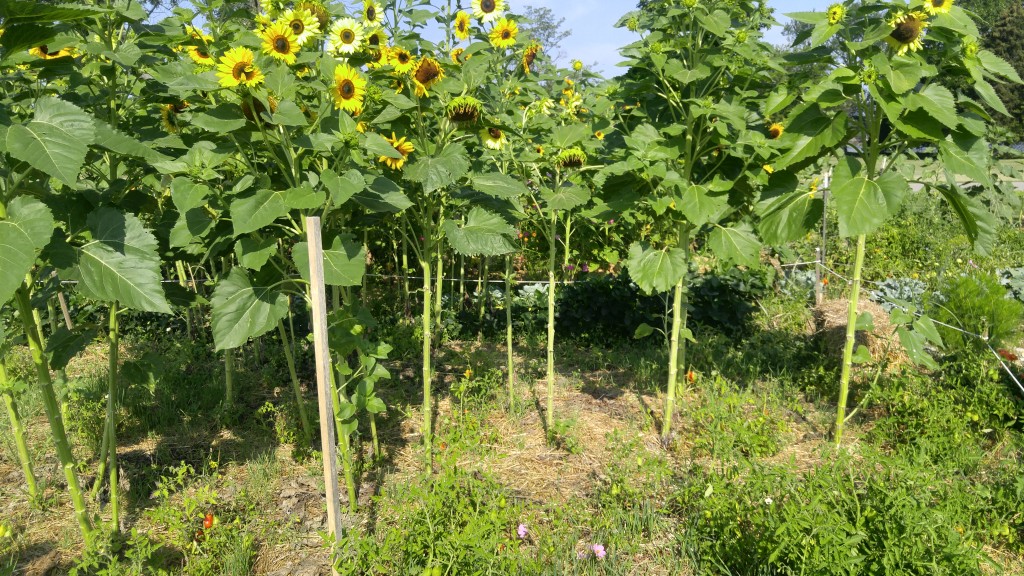Plants have developed an number of different survival techniques that can give them advantages over other plants competing for the same growing space. For example, some plants have roots that produce chemicals that inhibit the growth of other nearby plants of other species. It’s a process known as allelopathy.
Black walnut trees are probably the most recognized allelopathic plants. Homeowners find that it’s impossible to grow many kinds of plants in the root zone of a black walnut tree. Although they work differently than black walnuts, many farm crops such as alfalfa, buckwheat, winter rye and others are alleopathic plants.
Sunflowers provide a wonderful backdrop in the garden as they tower over a space making them a favorite of many gardeners. What gardeners might not know is sunflowers are also alleopathic plants. Because they have the ability to suppress the growth of weeds, sunflowers and other plants are the subject of on-going research to develop organic herbicides for use in sustainable agriculture. Unfortunately, along with weeds, many kinds of garden plants are affected by sunflowers as well.
I’ve noticed tomatoes in particular have difficulty growing near sunflowers. Tomatoes are sensitive to some man-made herbicides too, especially certain broadleaf herbicides such as the common lawn weed killer 2,4-D. That makes the tomato plant a great indicator plant for the presence of herbicides and naturally occurring alleopathic substances, sort of like the canary in the coal mine.
Until you know which of your plants can tolerate growing near sunflowers, the best thing is to grow them in a separate bed away from other garden plants.
Bob
,
